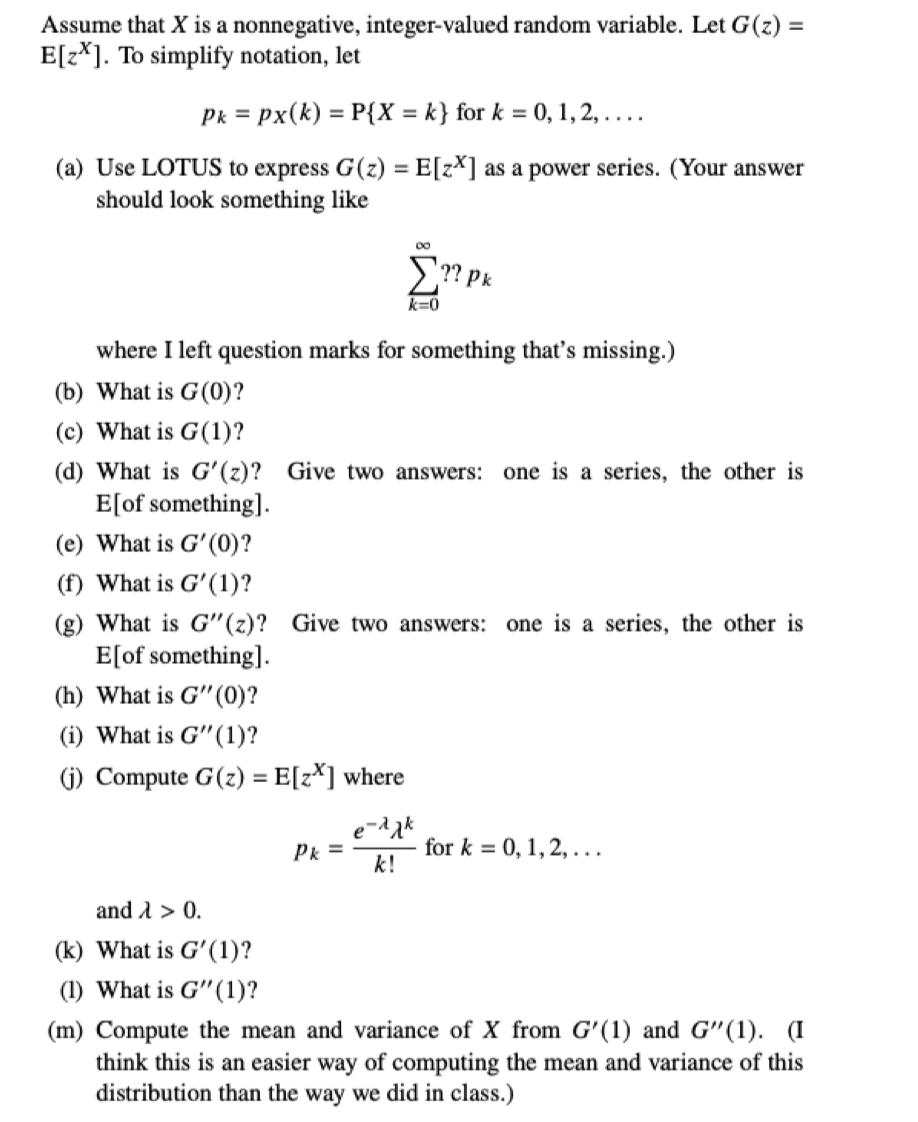Answered step by step
Verified Expert Solution
Question
1 Approved Answer
Assume that X is a nonnegative, integer-valued random variable. Let G(z) = E[z]. To simplify notation, let Pk = px (k)= P{X = k}

Assume that X is a nonnegative, integer-valued random variable. Let G(z) = E[z]. To simplify notation, let Pk = px (k)= P{X = k} for k = 0, 1, 2,.... (a) Use LOTUS to express G(z) = E[zX] as a power series. (Your answer should look something like 80 Pk = k=0 where I left question marks for something that's missing.) (b) What is G(0)? (c) What is G(1)? (d) What is G'(z)? Give two answers: one is a series, the other is E[of something]. (e) What is G'(0)? What is G'(1)? (g) What is G"(z)? Give two answers: one is a series, the other is E[of something]. (h) What is G" (0)? (i) What is G"(1)? (j) Compute G(z) = E[z*] where ?? Pk e-rk k! for k= 0, 1, 2,... and > 0. (k) What is G'(1)? (1) What is G" (1)? (m) Compute the mean and variance of X from G'(1) and G"(1). (I think this is an easier way of computing the mean and variance of this distribution than the way we did in class.)
Step by Step Solution
★★★★★
3.50 Rating (153 Votes )
There are 3 Steps involved in it
Step: 1

Get Instant Access to Expert-Tailored Solutions
See step-by-step solutions with expert insights and AI powered tools for academic success
Step: 2

Step: 3

Ace Your Homework with AI
Get the answers you need in no time with our AI-driven, step-by-step assistance
Get Started


